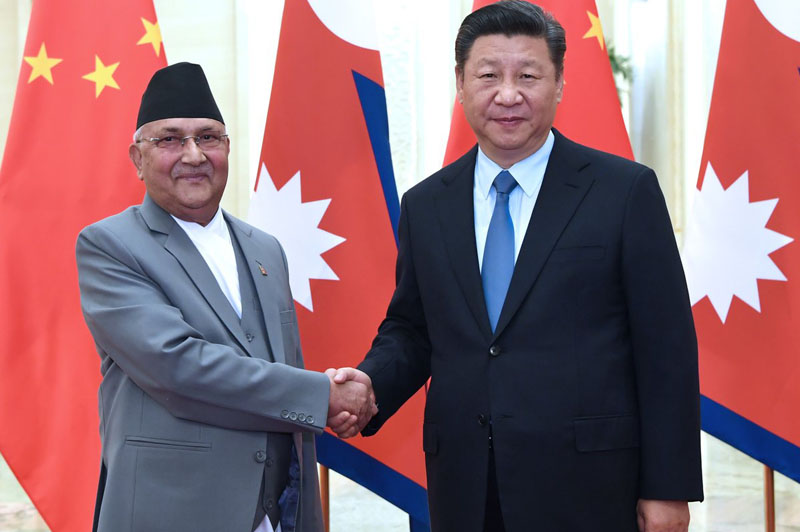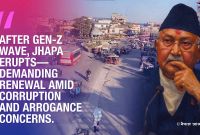BRI in Nepal: A Parliamentary Debate on Loans, Grants, and Sovereignty

Kathmandu - Nepal's parliamentary discussion on the ambitious Chinese project, the Belt and Road Initiative (BRI), has revealed a spectrum of views. The differing perspectives of the United States, India, and Europe on the BRI have influenced Nepal's ruling coalition's stance on the matter.
From the American perspective, there are concerns about China's growing strategic influence and the potential for debt-trap diplomacy through the BRI. This initiative is seen as a threat to Western interests and values.
India views the BRI as a tool for China's geopolitical expansion, particularly wary of the China-Pakistan Economic Corridor's potential to heighten regional rivalries. As a result, India has been critical of the BRI.
In Europe, while there are seen opportunities for trade and investment through the BRI, significant concerns persist over the lack of transparency, debt-trap risks, and potential conflicts with European values and standards.
Parliamentary Committee Discussion
In the International Relations and Tourism Committee of Nepal's House of Representatives, differing opinions emerged between the ruling Nepal Communist Party (UML) and coalition partner Nepali Congress regarding the BRI. The UML is in favor of advancing the BRI implementation agreement, whereas the Nepali Congress insists that the agreement should only proceed if grants, rather than loans, are ensured.
UML Member of Parliament Bhim Prasad Acharya emphasized that Nepal should not hesitate to implement the BRI agreement, advocating for the government to formulate a business plan to decide on taking loans or grants. "The question is not about loans or grants; the question is whether it meets our needs," Acharya stated.
In contrast, Nepali Congress MP Uday Shumsher Rana argued that Nepal is not in a position to take on more debt and should only proceed with the BRI if it provides economic benefits. "We are not against the BRI, but it should bring us benefits!" Rana remarked.
Opposition Parties' Views
Opposition parties demanded clarity on the status of BRI implementation. Unified Socialist Party Chairman Madhav Kumar Nepal stressed that external assistance should prioritize grants over loans. Rastriya Swatantra Party MP Shishir Khanal called for a clear parliamentary debate on the BRI agreement. Maoist Centre MP Sudan Kirati highlighted the need for clarity in implementing the BRI.
Foreign Minister's Stance
Foreign Minister Arzu Rana stated that there has been no definitive decision on the implementation of the BRI, underscoring the need for broader discussions. "There was extensive debate on the MCC; it came to the parliament. Similarly, any significant document with any nation should be thoroughly discussed," she said.
As the discussions continue, it is evident that there is a need for more clarity and consensus on the BRI within Nepal's ruling coalition and parliament.
Nepal should aim to maintain good relations with China without incurring debt through the BRI, considering international practices. Europe, India, and the United States have largely abstained from or withdrawn from BRI projects due to concerns over transparency, debt-trap risks, and potential strategic implications. Learning from these international examples, Nepal should focus on engaging in projects that provide clear economic benefits, ensuring sustainable development and a neutral foreign policy.
China In Nepal



![From Kathmandu to the World: How Excel Students Are Winning Big [Admission Open]](https://nepalaaja.com/img/70194/medium/excel-college-info-eng-nep-2342.jpg)
